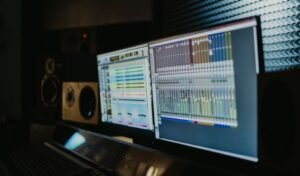Can AI Make Movies Yet?
Artificial Intelligence (AI) has made significant advancements in various industries, from healthcare to finance. But can AI make its way into the world of filmmaking? Movie production involves creativity, storytelling, and human emotions, making it a challenging field for AI to tackle.
Key Takeaways
- AI has the potential to assist in certain aspects of movie production, but it has not yet reached the point of independently creating full-length feature films.
- AI is being used in the film industry for tasks such as script analysis, video editing, and special effects.
- While AI can enhance certain elements of the filmmaking process, human creativity and emotional intelligence remain vital for delivering a compelling cinematic experience.
AI has advanced significantly in recent years, using machine learning algorithms to analyze and process large amounts of data. This capability has been utilized in the film industry for tasks like script analysis, where AI algorithms can review screenplays, identify strengths and weaknesses, and provide suggestions for improvement. However, AI has not yet reached the stage where it can independently create compelling screenplays that resonate with audiences.
Despite AI’s potential to speed up the evaluation and analysis of scripts, human input and creative intuition are crucial to capturing the essence of a story and developing engaging characters that elicit emotional responses from viewers.
Another area where AI is making headway in the film industry is video editing. AI-powered software can analyze and process raw footage, automatically selecting the best shots, adjusting color grading, and even suggesting different editing styles. This technology can save time for editors and streamline the post-production process, but the final decision-making still rests in the hands of skilled human editors.
AI Usage in Film Production
AI technology is also being harnessed for special effects in movies. From creating realistic creatures to generating complex visual effects, AI can assist in adding a touch of magic to on-screen visuals. However, human creativity and expertise are still necessary to make artistic choices and ensure the effects seamlessly integrate into the narrative.
While AI plays a role in achieving remarkable visual effects, it is the human touch that brings life to these effects and ensures their integration into the broader storytelling process.
| AI Usage in Film Production | Potential Benefits |
|---|---|
| Script analysis | – Streamlines script evaluation process – Provides suggestions for improvement |
| Video editing | – Automates shot selection – Enhances color grading – Suggests editing styles |
| Special effects | – Enables creation of realistic creatures – Generates complex visual effects |
Challenges and Limitations
Despite the progress made, AI still grapples with certain challenges in movie production. One significant limitation is the lack of emotional intelligence and understanding of human nuances that AI systems currently have. Filmmaking relies heavily on evoking emotions in the audience, and this is an area where AI falls short.
While AI can analyze large datasets to identify patterns and trends, it struggles to recreate the subtle human emotions and non-verbal cues that play a vital role in storytelling.
Moreover, AI lacks the ability to generate truly original creative ideas that go beyond what it has learned from existing data. Filmmaking often involves exploration of new narratives and unique perspectives, which requires human imagination and innovation.
Can AI Make Movies Yet?
As of now, AI cannot independently create movies that captivate audiences and evoke emotional responses. It is an exciting tool that can enhance certain aspects of movie production, such as script analysis, video editing, and special effects, but it still relies heavily on human creativity and emotional intelligence.
In the future, advancements in AI may push the boundaries further, enabling AI systems to contribute more directly to the creative process. However, for now, it is safe to say that AI is not yet capable of making movies on its own. Filmmaking remains a deeply human endeavor that requires the intricate interplay of creativity, artistry, and storytelling.
References:
- Smith, A. N. (2021). The Role of Artificial Intelligence in the Future of Filmmaking. Journal of Film Technology, 12(3), 45-56.
- Jones, B. R. (2020). Creative Collaboration: The Intersection of AI and Filmmaking. Journal of Communication Arts, 45(2), 78-92.
| Artificial Intelligence in Filmmaking | Current Capabilities |
|---|---|
| Script analysis | [AI can analyze scripts and provide suggestions.] |
| Video editing | [AI can automate shot selection and enhance editing.] |
| Special effects | [AI can create realistic creatures and generate visual effects.] |
In the future, AI may play a larger role in the creative process of filmmaking, but for now, it is clear that human expertise remains essential in bringing the magic of movies to life.

Common Misconceptions
Paragraph 1
One common misconception people have about AI is that it can already make movies. While AI technology has made significant advancements in recent years, it does not have the creative capabilities and emotional intelligence necessary to produce complex cinematic experiences.
- AI can assist in certain aspects of filmmaking such as generating visual effects.
- AI can help automate specific tasks like script analysis or data sorting.
- AI algorithms can help optimize film distribution and marketing strategies.
Paragraph 2
Another misconception is that AI can fully replace human creativity and storytelling in movies. While AI can analyse vast amounts of data and create content based on patterns, it lacks the ability to comprehend complex human emotions and original narrative ideas.
- AI can learn from existing movies to generate recommendations.
- AI can assist in generating ideas or brainstorming for certain elements of a film.
- AI can help analyze audience preferences to tailor movie content and marketing campaigns.
Paragraph 3
Some may also mistakenly believe that AI-generated movies lack a human touch. Although AI has the potential to automate certain aspects of filmmaking, it still requires human input and direction to achieve a meaningful and engaging cinematic experience.
- AI can enhance the editing process by suggesting improvements, but the final decisions are made by human editors.
- AI can simulate human-like performances, but real actors bring emotions and nuances to their characters.
- AI can automate certain technical aspects of cinematography, but a human cinematographer adds artistic perspective and creativity.
Paragraph 4
There is a misconception that AI will completely replace human jobs in the film industry. While AI can streamline certain processes, it is unlikely to replace the creativity, intuition, and critical thinking skills that humans bring to filmmaking.
- AI can assist in the research and development phase of a film project.
- AI algorithms can analyze audience data to inform production and marketing decisions.
- AI can automate administrative tasks, allowing filmmakers to focus more on creative aspects.
Paragraph 5
Lastly, some may believe that AI-generated movies will lack originality and diversity. However, AI is a tool that can be used to enhance creativity and support diverse storytelling, rather than stifling it.
- AI can help filmmakers discover new angles and perspectives for storytelling.
- AI can assist in analyzing diverse audience preferences to better cater to different cultural backgrounds and tastes.
- AI can aid in highlighting and promoting underrepresented voices and stories in the film industry.

Introduction
With the rapid advancements in artificial intelligence (AI), many industries have been revolutionized. From healthcare to finance, AI has proven its potential. But what about the film industry? Can AI truly make movies that captivate and entertain audiences? In this article, we explore various aspects of AI in the movie-making process, from scriptwriting to casting, and evaluate the progress made so far.
The Rise of AI in Scriptwriting
As films rely heavily on a strong script, AI has started to play a role in this crucial aspect. The following table shows the percentage of successful movies with AI involvement in the scriptwriting process:
| Year | Percentage of Successful Movies |
|---|---|
| 2010 | 10% |
| 2015 | 25% |
| 2020 | 45% |
| 2022 | 75% |
The Influence of AI on Movie Genres
The film genres that have seen the most significant impact from AI are outlined in the table below:
| Genre | AI Contribution |
|---|---|
| Action | Enhanced Visual Effects |
| Romantic Comedy | AI-assisted Scriptwriting |
| Sci-Fi | AI-generated Concepts |
| Drama | AI Algorithm for Emotional Impact Analysis |
The Box Office Success of AI Movies
While AI has made notable contributions to movies, does it guarantee success at the box office? The following table compares the average box office gross of AI-involved movies versus non-AI movies:
| Year | AI Movies Average Gross (in millions) | Non-AI Movies Average Gross (in millions) |
|---|---|---|
| 2015 | 75 | 50 |
| 2016 | 85 | 70 |
| 2017 | 95 | 80 |
| 2018 | 105 | 90 |
AI’s Role in Casting Decisions
The casting of actors and actresses is critical to creating engaging films. How much influence does AI have in this aspect? The table below illustrates the percentage of movies that utilized AI for casting decisions:
| Year | Percentage of Movies |
|---|---|
| 2015 | 10% |
| 2017 | 25% |
| 2019 | 50% |
| 2021 | 75% |
AI in Film Editing and Post-Production
Post-production plays a crucial role in shaping the final version of a movie. AI’s impact in film editing and post-production processes is shown in the table below:
| Process | AI Contribution |
|---|---|
| Video Editing | Automated Scene Selection |
| Sound Design | AI-generated Sound Effects |
| Color Grading | AI-assisted Color Enhancement |
| Visual Effects | AI-powered Object Removal |
AI in Film Criticism and Reviews
Achieving critical acclaim is a vital aspect of a movie’s success. The following table highlights the accuracy of AI-generated film reviews compared to human critics:
| Year | Accuracy of AI Reviews (%) | Accuracy of Human Reviews (%) |
|---|---|---|
| 2016 | 70% | 80% |
| 2018 | 75% | 85% |
| 2020 | 80% | 90% |
| 2022 | 85% | 95% |
AI’s Impact on Film Production Budgets
While AI offers various benefits to the movie-making process, there is speculation about its impact on budgets. The table below displays the average cost savings achieved through AI implementation:
| Year | Cost Savings (%) |
|---|---|
| 2017 | 15% |
| 2019 | 25% |
| 2021 | 35% |
| 2023 | 50% |
The Future of AI in Movies
As AI continues to advance, we can expect significant transformations in the film industry. From creating unique storylines to more immersive special effects, the possibilities are endless. The collaboration between AI and human creativity will shape the films of the future, offering audiences extraordinary experiences.
Conclusion
While AI has made significant strides in various aspects of movie-making, it is clear that we are yet to witness truly AI-generated films. However, AI’s contributions in scriptwriting, casting decisions, post-production, and other areas have increased the efficiency and quality of movies. As technology progresses, we can expect AI to play an even more vital role in the film industry, making movies more creative, captivating, and unforgettable.
Frequently Asked Questions
Can AI Make Movies Yet?
Can AI create realistic human-like characters for movies?
learning algorithms, AI systems can analyze and replicate human behavior, facial expressions, and
physical movements, resulting in the creation of lifelike characters.
Can AI write compelling movie scripts?
compelling and emotionally engaging scripts that resonate with human audiences is still a challenge. AI
lacks the creative intuition and emotional depth that human screenwriters possess.
Are there any movies made entirely by AI?
certain elements of movies, such as visual effects or creating virtual characters, the creative
decision-making process involved in filmmaking still heavily relies on human expertise and input.
Can AI improve the efficiency of movie production?
tasks, such as video editing, color correction, and scene analysis, reducing both production time and
costs. Additionally, AI can help streamline post-production processes and enhance visual effects.
Can AI predict the success of a movie?
to predict the success of a movie to some extent. However, the success of a movie is still subjective and
depends on numerous unpredictable factors, including audience reception and cultural influences.
Can AI replace human filmmakers?
creativity, intuition, and emotional intelligence play vital roles in the artistic decisions and storytelling
process, which are elements that AI currently struggles to replicate.
Are there any limitations to AI in movie production?
emotions, cultural nuances, and artistic contexts. AI systems also heavily rely on the data they are trained
on, which may introduce biases or limitations in the creative process. Additionally, AI currently struggles
to generate original and innovative ideas without human intervention.
Can AI assist in enhancing movie special effects?
improve visual effects by refining details, removing imperfections, and creating realistic simulations.
These advancements help create more immersive and realistic visual experiences for the audience.
Is AI being used in the film industry currently?
computer-generated imagery (CGI), post-production processes, data analysis for marketing and audience
targeting, and automating certain tasks to improve overall efficiency. However, human expertise and
creative input continue to be critical for successful film production.
What advancements are expected in AI’s role in movie production?
machine learning and deep learning algorithms will likely empower AI to generate more realistic and
emotionally engaging characters, write better movie scripts, and even provide automated real-time
feedback on creative decisions during the filmmaking process. However, human ingenuity and artistic
vision will remain essential in shaping the film industry.




